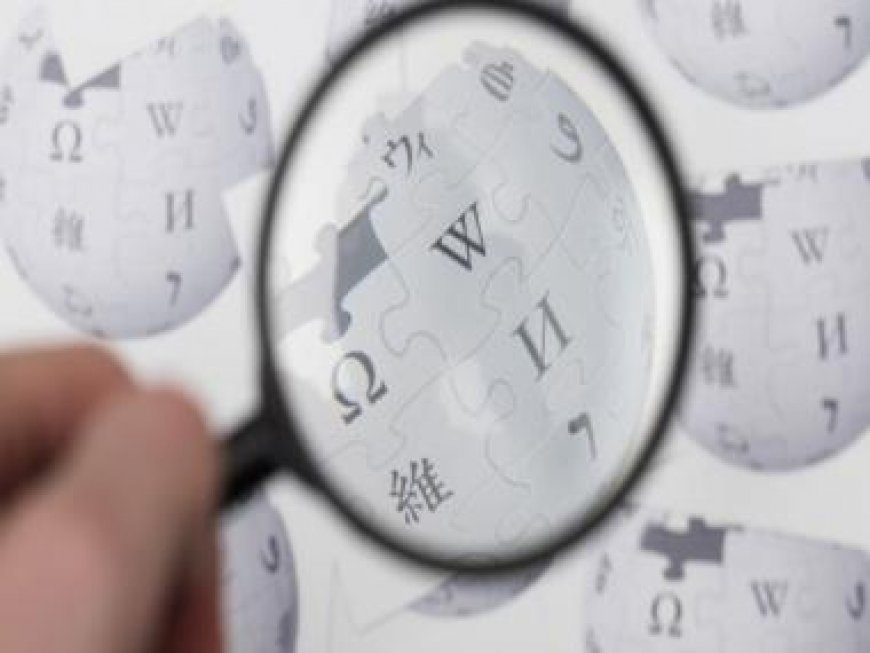Russia to launch their own Wikipedia clone that will be friendlier to Putin following Wagner mutiny
Russia to launch their own Wikipedia clone that will be friendlier to Putin following Wagner mutiny

In late June, armed mercenaries took control of a Russian regional capital and began moving towards Moscow. It was difficult to find reliable information about the situation. Initially, Vladimir Putin’s propaganda machine ignored the mutiny by the Wagner Group.
The government also blocked access to Google News through major internet providers and concealed search results, such as the rebels’ leader, Yevgeny Prigozhin, on the Russian search engine Yandex.
However, Wikipedia, the collaborative online encyclopedia, was an exception. It published a detailed article in Russian called “The Mutiny of the Wagner Group.” This article provided up-to-date information about the uprising and included sources ranging from news media outlets criticized by the Kremlin to US newspapers and Russian state media. The article was quite long, consisting of thousands of words, and received over 270,000 page views on its first day.
Despite the Kremlin’s efforts to control information, Wikipedia remains one of the most popular websites in Russia. It attracts about 95 million visitors each month and has around 10,000 active editors who maintain almost 2 million articles in Russian.
This enduring presence of Wikipedia is surprising considering the government’s increasing attempts to control the narrative, especially since the invasion of Ukraine. Wartime censorship has resulted in new laws against so-called “disinformation” and the banning of news websites, civic organizations, and even environmental groups.
Wikipedia has faced increasing challenges in Russia. The government has imposed substantial fines, amounting to nearly 23 billion rubles, and demanded the removal of certain content, which the Wikimedia Foundation has refused. President Putin has expressed his dissatisfaction with Wikipedia and expressed support for an alternative platform that aligns with the government’s views.
In April, a Kremlin-backed figure suggested replacing Wikipedia with a more compliant local alternative. Although a similar version called Ruwiki emerged in June, it lacked critical articles and content banned by the Russian government. The creator, Vladimir Medeyko, who had been a leader among Russian Wikipedia editors, left the project to develop Ruwiki, aiming to make it more aligned with the government’s expectations.
Unlike Wikipedia, Ruwiki restricts external editing, and Medeyko plans to involve panels of experts to vet content.
While Vladimir Medeyko, the creator of Ruwiki, opposes blocking Wikipedia, some hard-liners view his project as a means to achieve that goal. Alexander Khinshtein, chair of the digital committee in the Russian parliament’s lower house, expressed this sentiment on his Telegram account the day after Ruwiki’s launch, stating that Wikipedia can only be blocked once a domestic alternative exists, which is no longer an issue.
Russian Wikipedia contributors are concerned about a similar outcome. Stanislav Kozlovskiy, who succeeded Medeyko, acknowledges that if the government decides to block them, they have the capability to do so.
Kozlovskiy states that the Putin regime has targeted fewer than 200 articles, which is a small fraction of the total. However, he also notes that fully satisfying government censors is challenging. They strive to maintain neutrality, and moderators review sensitive issues to the best of their ability.
Wikipedia’s popularity serves as a strong defence against government actions. When China banned Wikipedia, they countered it by creating a government-friendly alternative called Baidu Baike, which adhered to censorship rules and provided a similar service.
Medeyko aims to replicate Wikipedia’s crowdsourcing approach with Ruwiki, attracting editors who may feel excluded from Wikipedia due to political controversies or other reasons. However, his creation of Ruwiki has caused a rift in his former community, with Wikipedia editors immediately deleting his account.
If Ruwiki becomes dominant in Russia, original Wikipedia editors will need to decide their stance and engagement with the new platform.
What's Your Reaction?



























































